
Over a decade ago Dr. Beth Dupree saved my mother’s life with a bilateral skin-sparing mastectomy after a diagnosis of multifocal ductal carcinoma in situ (DCIS) in her left breast. Her guidance during that pivotal period has truly shaped who my mother has become in the years since.
Not surprisingly, my mother has largely shaped who I have become in the years since as well. Her breast cancer journey is what led me to research how Yoga Tune Up® and Roll Model® Method practices and techniques can be utilized to best serve women after a breast cancer diagnosis, which has led me to write this series of articles for the Tune Up Fitness Blog.
In the following article I will summarize key takeaways from my consultations with breast surgeons and medical professionals about the processes of breast cancer treatment. Next week I will discuss my approach as a Yoga Tune Up® teacher and Roll Model Method® practitioner in working with clients who have received a diagnosis of breast cancer. Future posts will offer specific YTU corrective exercises and RMM Therapy Ball practices to support some common challenges during breast cancer treatment.
Re-reading Dr. Dupree’s book The Healing Consciousness, and reaching out to her Healing Consciousness Foundation were among my first steps in researching for this project. I was also fortunate to interview Dr. Benjamin Lam, the plastic surgeon who did my mom’s reconstruction, and consult Dr. Renee Quarterman, Director of the Breast Program at St. Mary Medical Center where she currently volunteers.
Dr. Dupree’s book has a chapter entitled “Fear Paralyses, Knowledge Empowers.” Many of the women I surveyed were frustrated by feeling like they had unanswered questions and incomplete information during the treatment process. Dr. Lam agreed that patients need to feel informed about their options and confident in the course of treatment and the medical professionals overseeing it.
Knowledge is power, and Dr. Quarterman introduced me to a valuable resource, Breast360, which is dedicated to educating breast cancer patients with material written by members of The American Society of Breast Surgeons. Since I do not have space to go into specifics in this article, I feel compelled to share this resource which is filled with suggestions from breast surgeons particularly related to specific diagnoses, courses of treatment, and current research.
Identifying the Challenges
Going into this project, I was primarily focused on tissue damage and mobility issues, and with good reason. Tissue trauma can be a significant factor, though the extent of the damage is largely dependent upon the individual’s diagnosis and prescribed course of treatment. Every body, every diagnosis, and every treatment process is unique.
Some patients will have the option of a lumpectomy — a breast-conserving procedure to remove the cancerous breast tissue along with a “clear margin” of normal tissue, often during an outpatient procedure. This is frequently followed up with radiation. Other patients may be advised to have a mastectomy, a complete removal of the breast tissue. There are many types of mastectomy and many modern techniques, which can strive to save the nipple, breast skin, lymphatic tissue, and pectoralis muscles when possible.
With so many patients dealing with significant tissue trauma, I expected the surgeons I spoke with to focus on pre-hab and re-hab. They did recommend adopting a healthy lifestyle and endorse movement and exercise after a certain stage of recovery, but to my great surprise every medical professional I spoke with seemed to place most of their emphasis on the patient’s mindset after a diagnosis of breast cancer and throughout any treatment process.
Surgeons Recommend Sankalpa*
In Yoga Tune Up® we can define sankalpa as an intentional mindset. It is a conscious lens through which we can refract and reframe unhelpful and habitual thought patterns, and focus our energy on the inner resolve of our choosing. The sentiments the breast surgeons shared with me translated into several sankalpas that I’ve since adopted for my own in recent times of need. They came as parts of readings that resonated or statements that gave me goosebumps during an interview.

The primary challenge of women I surveyed — all of whom were either awaiting, undergoing, on the other side of, or unable to receive treatment — was fear. Fear of the unknown, fear of diagnosis, fear of telling loved ones, fear of treatment or of making the wrong decision about it, and fear of recurrence. Most women are terrified from the moment of diagnosis onward, vacillating between being numbed by the shock and magnitude of it all and overwhelmed by the number of life-altering decisions they need to make. How synchronistic that my research churned up a list of sankalpas focused on empowering women to shift their mindset to move beyond fear. This practice is not about reciting empty platitudes every morning to maintain a smiling face for the outside world. It is a tool to carry with you in darker moments, a spark of a phrase that ignites the deepest parts of you. It beckons you to embody the most inspired versions of yourself.
Next week, I will discuss techniques for crafting a sankalpa to serve as an important reminder of strength and determination during a difficult time.
*Full Disclosure: None of the breast surgeons referenced actually used the Sanskrit term or spoke of any inclination to recommend one to their patients. “Surgeons Recommend Sankalpa” is perhaps too cool a heading to be entirely accurate.

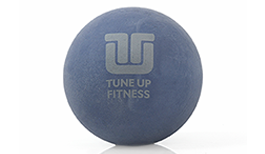

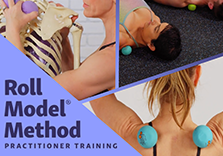



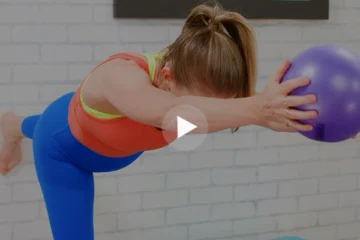
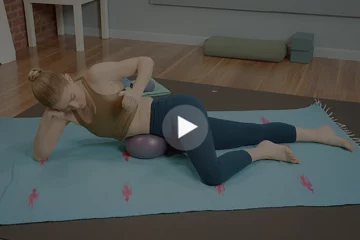

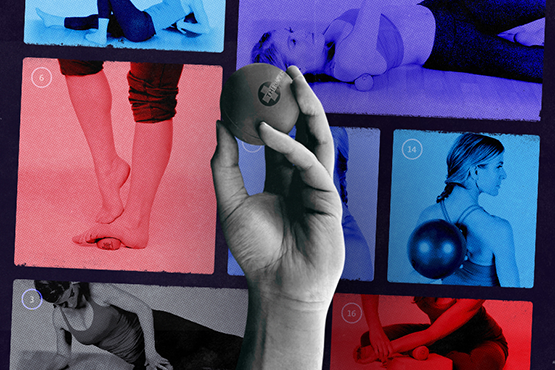
This strikes a beautiful, and personal chord. When I faced my own breast cancer diagnosis in 2008 I did not know about Sankalpa or the empowering benefits of the shift in perspective that practicing Sankalpa could provide. I did find a calming and centering from my experiences with yoga, breathing completely, and consciously.
When meeting with my surgeon, who told me I was “sick”, I responded (in complete denial) “I am not sick, I have a tumor, you will remove the tumor, the treatment to save my life, chemotherapy will make me sick”…That was my Sankalpa, I just did not have a name for it. Thank you for what you are doing to help women who are facing the unwelcome and scary journey of a breast cancer diagnosis. There can never be enough support, every journey is unique, and the early support is so valuable in empowering women to make their personal and unique choices along the journey and for the life they get to live.
Because I am a Fitness Specialist now sharing movements with Cancer Survivors this blog totally caught my attention..It is very informative and I will be reading my blogs on this topic. Thank you for sharing your wisdom.
I am so excited I found this and to follow this series!! Two years ago we started a Cancer Rehab group, founded by two physiotherapists, to provide a safe place for individuals who have received a cancer diagnosis, whether in remission or actively seeking treatment, to come and exercise, have fun, and meet people with shared experiences. It has been such a blessing in my life twice a week for an hour to watch these individuals grow. We have returned countless people to work, allowed them to pick up their children again pain free, and helped regain full range of motion. Our first group (6 ladies all with breast CA dx) still holds a dear place in my heart and with a group that has grown to 12-15 athletes consistently, we still have a large group of women who still have lingering issues due to treatments and scar tissue. After reading this article, I am so excited to continue to follow along and bring back these skills to my lovely group of people!!
I’m glad that you addressed this important aspect of dealing with breast cancer and treatment. It should be an automatic “to-do”for physicians to underscore to the benefits of a positive attitude, through Sankulpa or otherwise, to their patients as part of their treatment.
It is so interesting to me how mindset can be such a factor in peoples health and wellbeing. It is good to hear that doctors are aware of this.
It is a beautifully written article, lots of women have unfortunately been in that situation and the sankalpa is great tool to cope with it.
Informative on the anxieties one would feel undergoing the knife and all the worries that go along with it. I thought your description of the sankalpa was very helpful and so important to curb anxiety and create an positive frame of mind.
Well articulated article. I love your description of Sankalpa that it’s not about reciting empty platitudes to have that smile for the whole world. However, it has to come from the “highest” or most inspired part of your being. The physical and transformative work comes from the right frame of mind.
Thank you so much for your detailed comments, Amy. You raise a lot of important points. I should add that my first case of breast cancer was estrogen positive, but the second, on the other breast, was triple negative, with a micromat showing up in one lymph node. This meant I had to undergo chemo, but I still decided to go for lumpectomy and radiation rather than mastectomies. I don”t think my surgeon approved of the choice I made, but my oncologist, based on outcomes of her other patients, supported my decision.
Very interesting article. So many students, friends and family are coping with cancer treatment. Learning tools to help with the fear and stress is so important. Thanks for doing the research and sharing.
Beautifully written article, Riannon! I know so many people who have been through this, and need this hope and help. I am looking forward to the rest of the series. 🙂
Thank you for sharing your story. It was very helpful to be reminded that Sankalpas help to move us from fear to empowerment even in the face of such difficult times.
Interesting article. I especially like knowing that surgeons are now using Sankalpas!
It’s incredible what the mind can do! I look forward to reading your next article.
Great piece on how we can reframe our thought patterns and experience empowerment.
This article is so incredible for anyone suffering from this awful disease- your state of mine – how you think and what you let in and out – A Sankalpa certainly can be the small phrase that gets you through a difficult moment I. Your day